
Sitra: Bahrain's Enchanting Island Oasis
Nestled in the heart of the Arabian Gulf, Sitra is an island city that offers a unique blend of modernity and tradition. Known for its picturesque landscapes and serene beaches, Sitra provides a tranquil escape from the hustle and bustle of city life. Whether you're a history buff, a nature lover, or an adventure seeker, Sitra has something to offer for everyone. Explore the rich history of Sitra by visiting the ancient archaeological sites that date back to the Dilmun civilization. The island's historical significance is evident in its well-preserved ruins and ancient artifacts, which offer a glimpse into Bahrain's storied past. Don't miss the iconic Sitra Fort, a testament to the island's strategic importance in the region. For nature enthusiasts, Sitra's lush greenery and pristine beaches are a paradise waiting to be explored. Take a leisurely stroll along the scenic coastline, or indulge in water sports like snorkeling and jet skiing. The island's diverse marine life and coral reefs make it a perfect spot for underwater adventures. Sitra is also a culinary haven, offering a variety of local and international cuisines. Savor traditional Bahraini dishes at local eateries, or enjoy fine dining at one of the island's upscale restaurants. The friendly locals and vibrant culture add to the charm of this enchanting island, making it a must-visit destination in Bahrain.
Local tips in Sitra
- Visit Sitra Fort early in the morning to avoid crowds and enjoy the serene atmosphere.
- Rent a bike to explore the island at your own pace and discover hidden gems.
- Try the local seafood at waterfront restaurants for a taste of fresh, authentic Bahraini cuisine.
- Stay hydrated and wear sunscreen, as the island can get quite sunny and warm.
- Respect local customs and dress modestly, especially when visiting historical and religious sites.
Sitra: Bahrain's Enchanting Island Oasis
Nestled in the heart of the Arabian Gulf, Sitra is an island city that offers a unique blend of modernity and tradition. Known for its picturesque landscapes and serene beaches, Sitra provides a tranquil escape from the hustle and bustle of city life. Whether you're a history buff, a nature lover, or an adventure seeker, Sitra has something to offer for everyone. Explore the rich history of Sitra by visiting the ancient archaeological sites that date back to the Dilmun civilization. The island's historical significance is evident in its well-preserved ruins and ancient artifacts, which offer a glimpse into Bahrain's storied past. Don't miss the iconic Sitra Fort, a testament to the island's strategic importance in the region. For nature enthusiasts, Sitra's lush greenery and pristine beaches are a paradise waiting to be explored. Take a leisurely stroll along the scenic coastline, or indulge in water sports like snorkeling and jet skiing. The island's diverse marine life and coral reefs make it a perfect spot for underwater adventures. Sitra is also a culinary haven, offering a variety of local and international cuisines. Savor traditional Bahraini dishes at local eateries, or enjoy fine dining at one of the island's upscale restaurants. The friendly locals and vibrant culture add to the charm of this enchanting island, making it a must-visit destination in Bahrain.
When is the best time to go to Sitra?
Unmissable attractions to see
Bahrain International Circuit
Experience the thrill of motorsport at Bahrain International Circuit, home to Formula 1 and a variety of racing events in the Middle East.
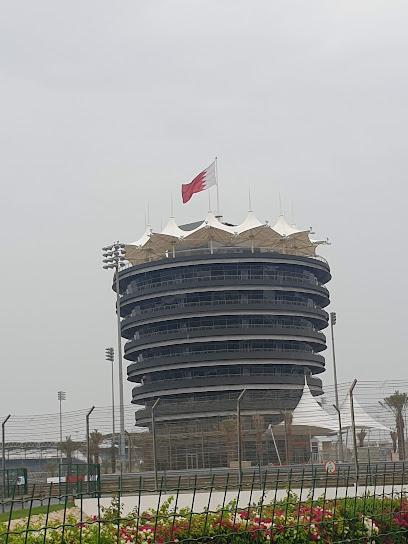
Al Areen Wildlife Park
Discover Arabian wildlife at Bahrain's premier conservation center, home to endangered species and lush landscapes. A unique nature experience awaits!
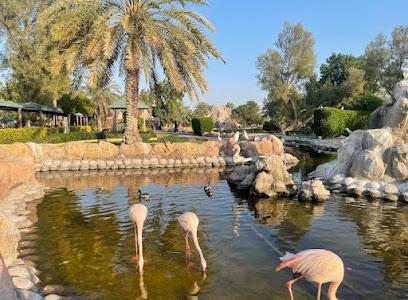
Al Fateh Grand Mosque
Discover Bahrain's iconic Al Fateh Grand Mosque: a融合 of Islamic art, culture, and architectural grandeur in the heart of Manama.
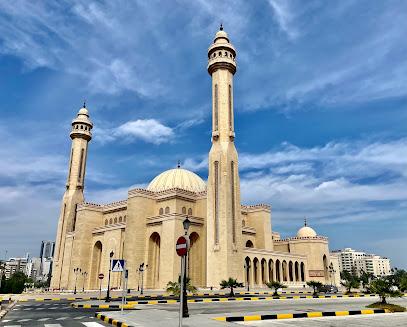
Bahrain Fort
Explore 4,500 years of history at Bahrain Fort, a UNESCO World Heritage Site and ancient capital of the Dilmun civilization.
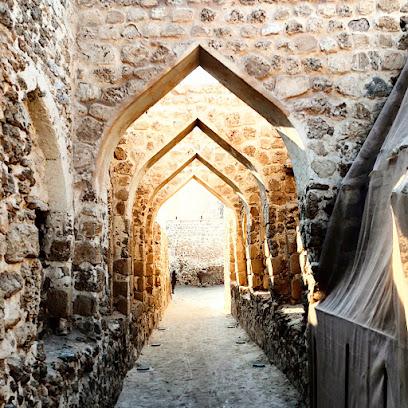
Tree of Life
Witness the miracle of Bahrain's Tree of Life, a 400-year-old enigma standing strong in the heart of the Arabian Desert.
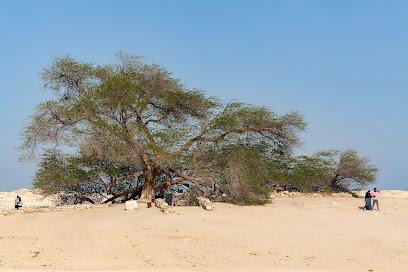
Bahrain Fort
Explore Bahrain Fort: A UNESCO World Heritage Site revealing 4,000 years of history, from the Dilmun civilization to Portuguese rule.
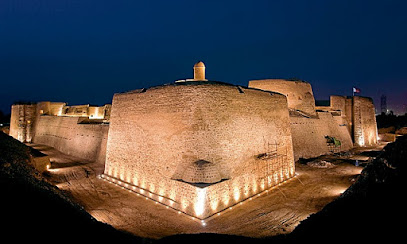
ZUHOOR AL MUHARRAQ SWEETS
Experience the sweet taste of Bahraini heritage at Zuhoor Al Muharraq Sweets, a traditional confectionery in the heart of Muharraq's bustling market.
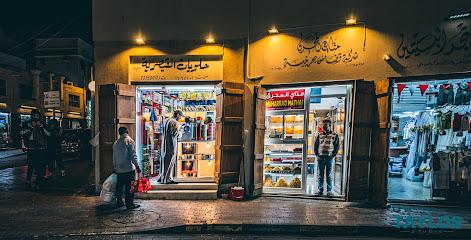
Bahrain Financial Harbour
Discover Bahrain Financial Harbour, a modern architectural marvel blending commerce, culture, and waterfront views in the heart of Manama.
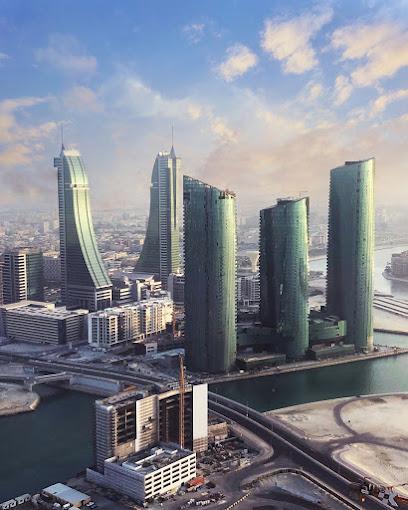
Bahrain National Museum
Explore 6,000 years of Bahraini history, from ancient civilizations to modern culture, at the Bahrain National Museum in Manama.
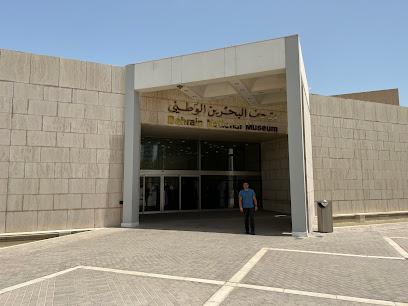
Taybeen Museum
Relive cherished childhood memories at Taybeen Museum in Al Khobar, a nostalgic treasure trove of Saudi Arabia's cultural past from the 70s-90s.
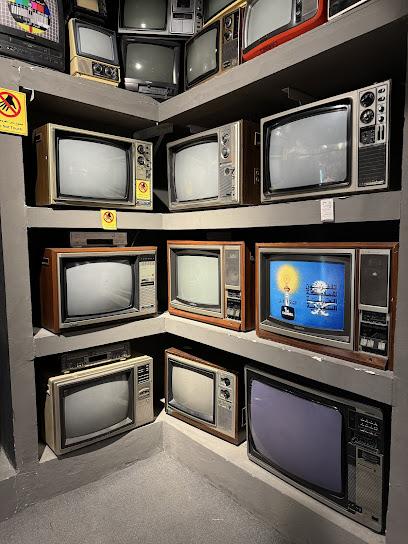
Shri Krishna Temple
Discover the spiritual heart of Manama at the Shri Krishna Temple, a historic landmark showcasing Bahrain's religious harmony and vibrant Indian heritage.
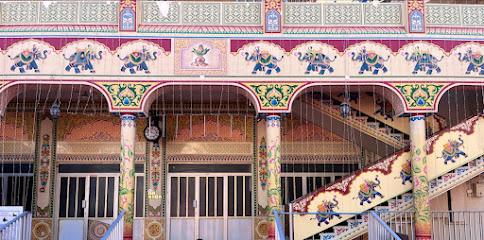
Arad Fort
Explore Arad Fort, a 15th-century fortress in Bahrain, showcasing Islamic architecture and a rich history of defending the island.
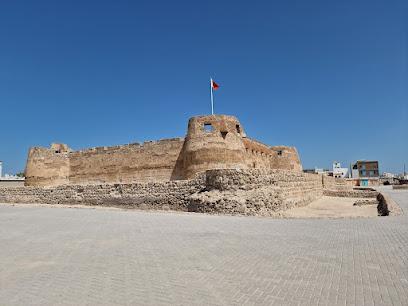
Al Zubara Fort
Explore Al Zubara Fort, a UNESCO World Heritage Site, showcasing Qatar's military history and rich cultural heritage through fascinating exhibits.

Sheikh Salman bin Ahmed Fort
Discover Bahrain's heritage at Sheikh Salman bin Ahmed Fort in Riffa, a historic landmark with stunning views and a glimpse into the past.
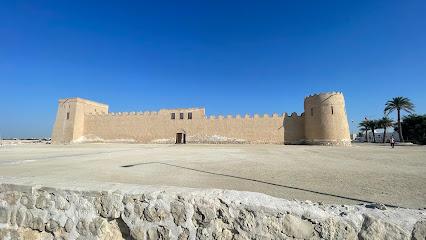
Royal Camel Farm
Meet the gentle giants of the desert at the Royal Camel Farm in Janabiyah, Bahrain, and discover the cultural significance of camels in Bahraini tradition.
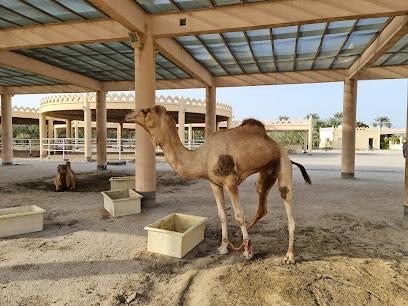
Essential places to dine
Al Naeem Grill
Discover authentic Middle Eastern cuisine at Al Naeem Grill in Sitra – where every meal is a flavorful journey into Bahrain's rich culinary heritage.
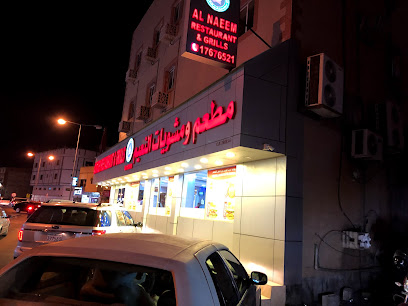
Anwar Aliraq restaurant
Discover authentic Iraqi cuisine at Anwar Aliraq Restaurant in Sitra – where every dish tells a story.
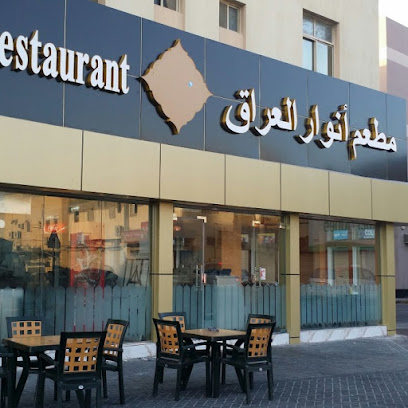
ليالي الفرات - Al Furat Nights Restaurant & Grills
Experience authentic Bahraini cuisine at Al Furat Nights Restaurant & Grills in Sitra - where every meal is a delightful journey into flavor.
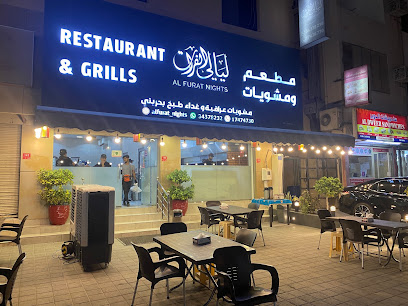
Spice Court Restaurant & Catering
Experience authentic Bahraini flavors at Spice Court Restaurant & Catering in Sitra, where every dish tells a story.
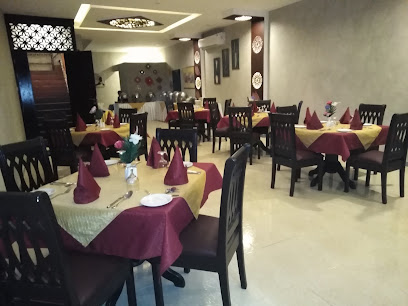
Oak pizza and pasta Restaurant
Savor the authentic taste of Italy at Oak Pizza and Pasta Restaurant in Sitra, where every dish is crafted with passion.
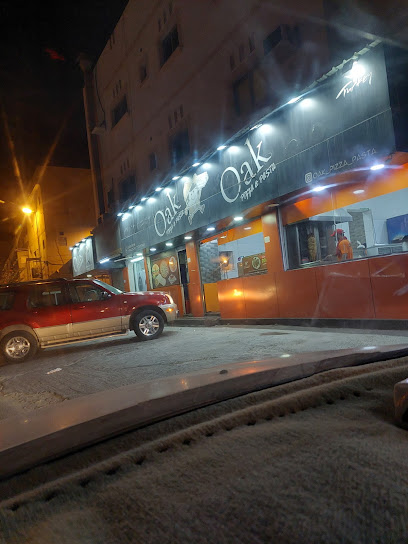
Almowood Gate Restaurant and Grill
Experience the rich flavors of Bahraini cuisine at Almowood Gate Restaurant and Grill, where tradition meets modern dining in Sitra.
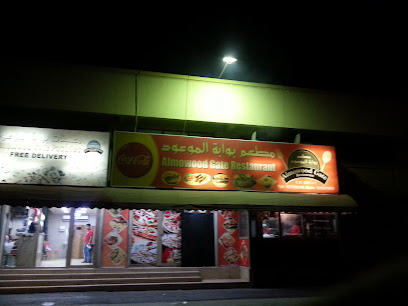
SUB CORNER RESTAURANT
Discover culinary delights at Sub Corner Restaurant in Sitra – where local flavors meet international cuisine.
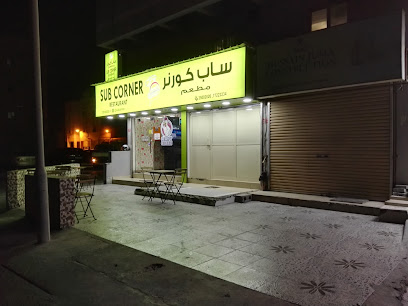
Rahmaniya Restaurant
Experience the rich flavors of Bahrain at Rahmaniya Restaurant - your go-to spot for authentic local cuisine in Sitra.
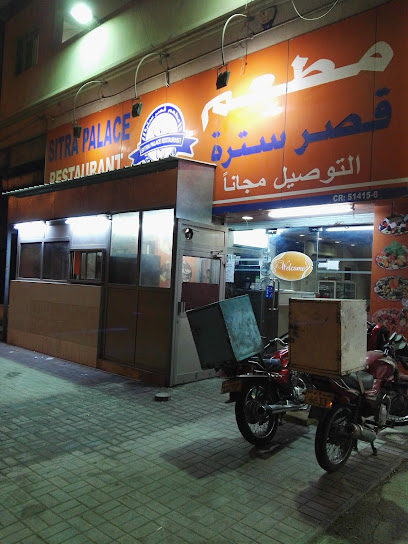
Al Karawan Restaurant
Discover authentic Bahraini cuisine at Al Karawan Restaurant in Sitra - where tradition meets flavor in every dish.
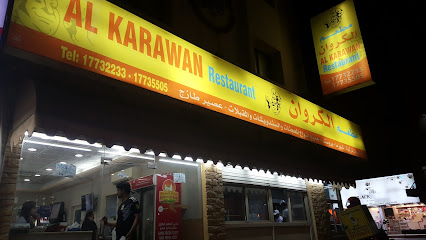
Apna Restaurant
Discover authentic Bahraini flavors at Apna Restaurant in Sitra – a culinary haven for tourists seeking unforgettable dining experiences.
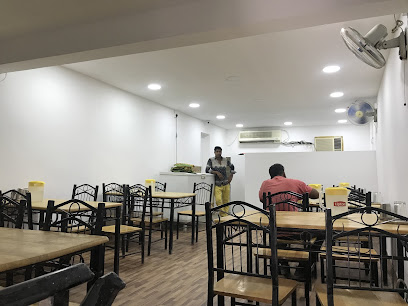
Fareej Bin Aqool Restaurant فريج بن عاقول
Discover authentic Bahraini flavors at Fareej Bin Aqool Restaurant in Sitra – where tradition meets taste.
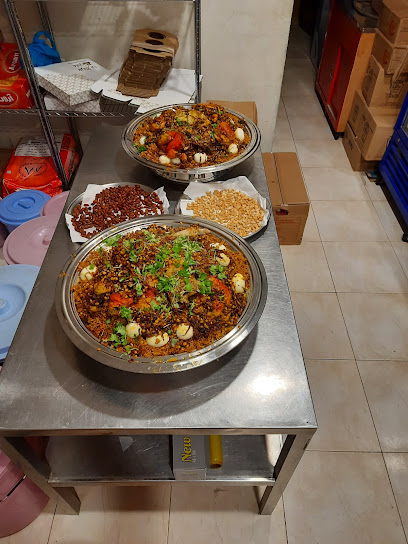
We Restaurant
Experience authentic Bahraini flavors and international cuisine at We Restaurant in Sitra - where every meal is a celebration.
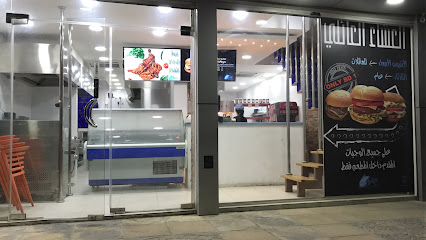
مطعم دارينز
Experience authentic Middle Eastern cuisine at مطعم دارينز in Sitra - where tradition meets taste.
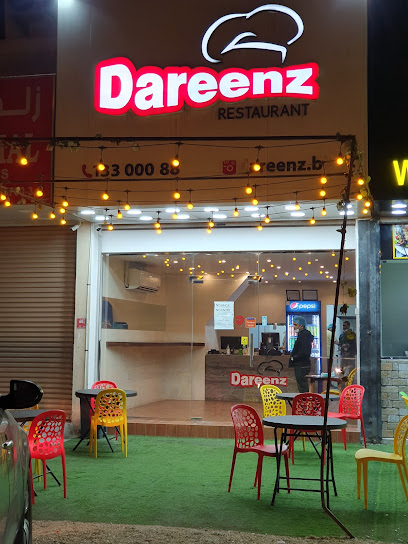
2 Line restaurant
Discover authentic Bahraini flavors at 2 Line Restaurant in Sitra – where tradition meets taste.
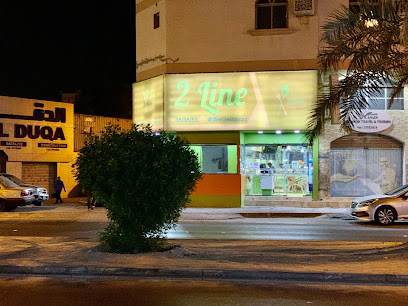
مطعم عشرة على عشرة
Discover the authentic taste of Bahrain at مطعم عشرة على عشرة in Sitra - where tradition meets flavor in every bite.
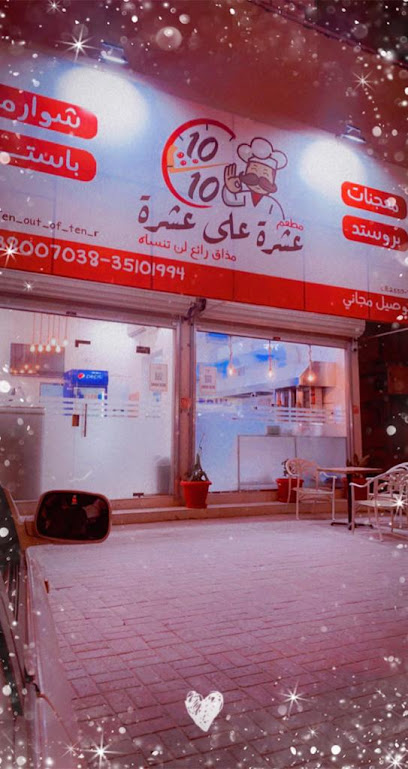
Markets, malls and hidden boutiques
Sitra Mall
Explore the vibrant Sitra Mall in Bahrain, a bustling shopping haven offering diverse brands, delicious dining, and endless entertainment options.
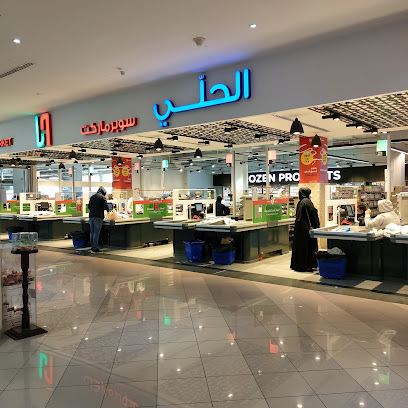
AlHelli Supermarket
Discover the vibrant flavors of Bahrain at AlHelli Supermarket, your go-to destination for local groceries and international delights in Sitra.
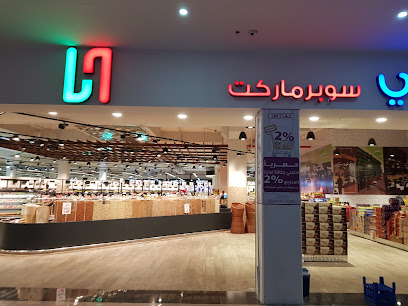
Emirates Gift Market WLL
Discover unique gifts and local treasures at Emirates Gift Market WLL in Sitra, a vibrant haven for shoppers in Bahrain.
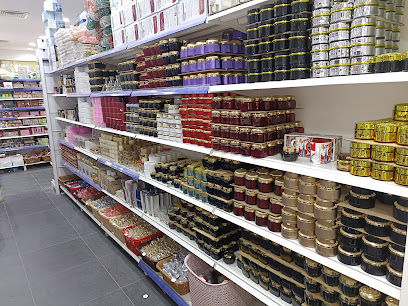
السرحان للتمور - Al Sarhan Dates
Discover the rich flavors of Al Sarhan Dates in Sitra, where traditional Bahraini dates and local culture come together in a delightful shopping experience.
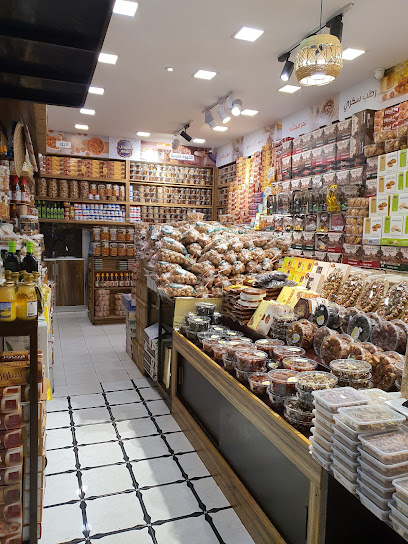
Bahrain Pride, Sitra
Explore Bahrain Pride in Sitra for an unforgettable shopping experience featuring furniture, groceries, and local treasures.
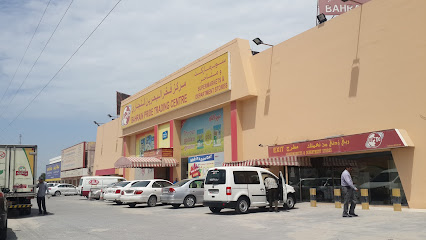
Union Press
Discover Union Press in Sitra, where creativity meets craftsmanship through exceptional printing, graphic design, and bespoke leather goods.
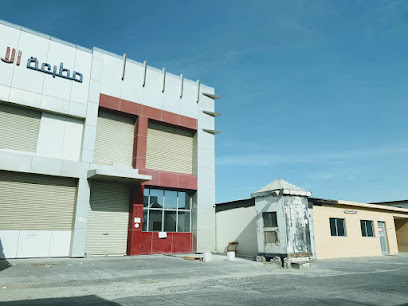
H&H for unique women
Discover unique women's fashion at H&H for Unique Women in Sitra, where style meets individuality in every carefully curated piece.
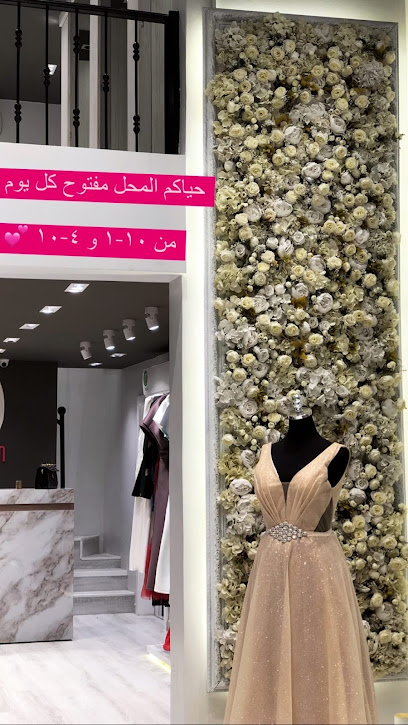
10 Star Furniture W.L.L. Bahrain
Explore the finest selection of stylish and functional office furniture at 10 Star Furniture W.L.L. in Sitra, Bahrain.
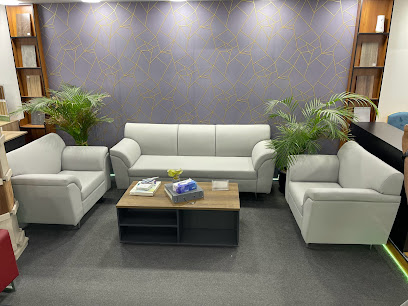
Details Concept Store & Online Shop
Uncover unique gifts and handcrafted treasures at Details Concept Store in The Bahrain Mall, your go-to destination for memorable souvenirs.
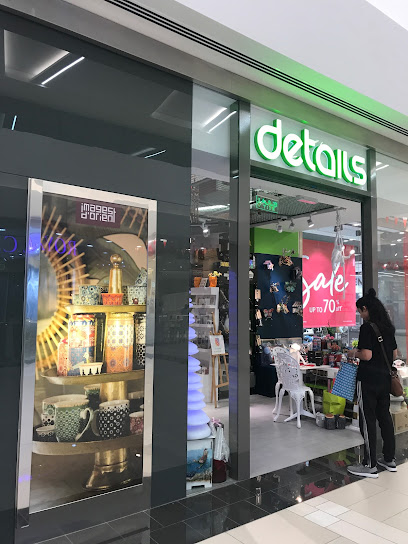
Qitaf Boutique
Discover Qitaf Boutique, the ultimate destination for stylish clothing and unique fashion finds in Sitra, Bahrain.

أسواق هدايا الإمارات
Immerse in the vibrant atmosphere of أسواق هدايا الإمارات, a shopping haven for unique gifts and traditional Emirati treasures in Sitra.
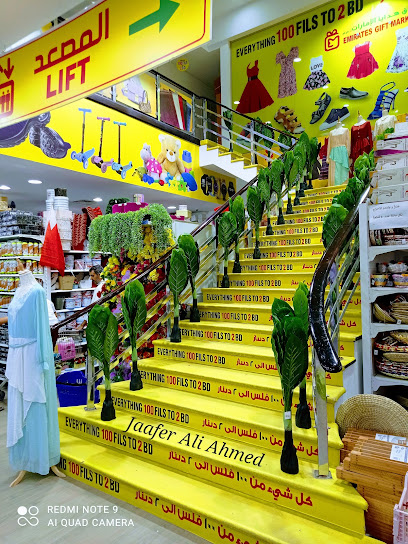
Eminence Hardware Trading Co.W.l.l
Discover top-notch tools and materials at Eminence Hardware Trading Co. W.L.L, your go-to hardware store in Sitra, Bahrain.
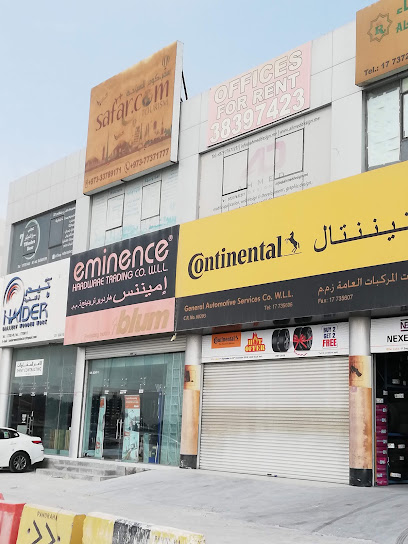
Alnoor store
Experience the vibrant culture of Bahrain at Alnoor Store in Sitra, where unique local products and friendly service await every shopper.
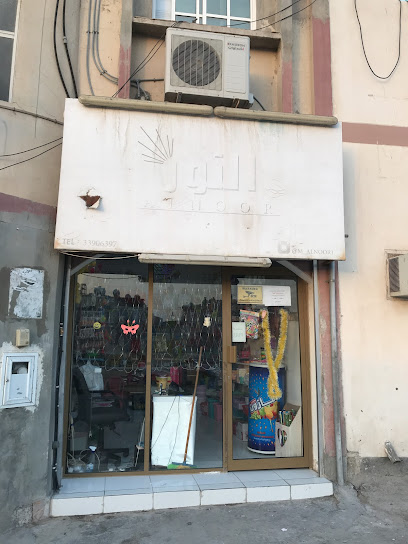
Pearls Of Bahrain Jewellery
Explore the finest selection of pearls and handcrafted jewelry at Pearls Of Bahrain Jewellery, a cultural gem in Sitra.

Ammar Store Co WLL
Discover Ammar Store Co WLL in Sitra for all your hardware needs, featuring a vast selection of tools and home improvement supplies at competitive prices.
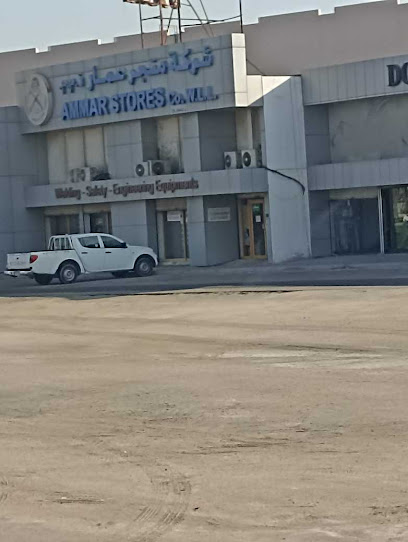
Essential bars & hidden hideouts
LNT Lounge
Experience the vibrant nightlife and exquisite dining at LNT Lounge, the perfect fusion of bar, restaurant, and club in Manama.
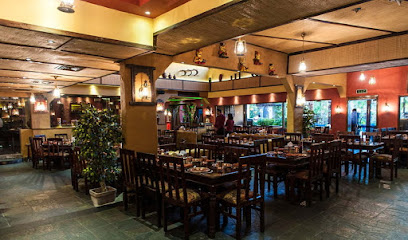
McGettigan's
Discover McGettigan's, a lively Irish pub in Manama offering delicious food, refreshing drinks, and unforgettable entertainment for an authentic experience.
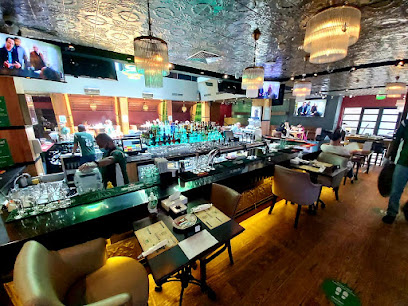
Grand Yard House Bahrain
Discover the ultimate sports bar experience at Grand Yard House Bahrain, where lively atmosphere meets delicious food and drinks in the heart of Juffair.
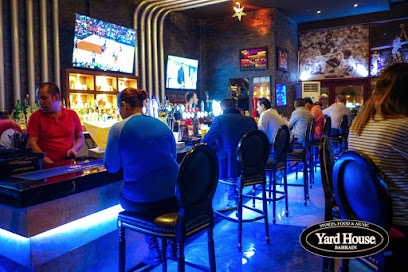
ليالي الفرات - Al Furat Nights Restaurant & Grills
Discover the rich flavors of the Middle East at Al Furat Nights, a culinary haven in Sitra known for its grilled specialties and welcoming atmosphere.
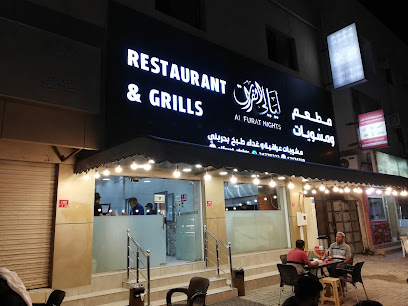
Davy Crockett's
Experience the vibrant nightlife of Manama at Davy Crockett's, a lively bar offering a great selection of drinks and a welcoming atmosphere.
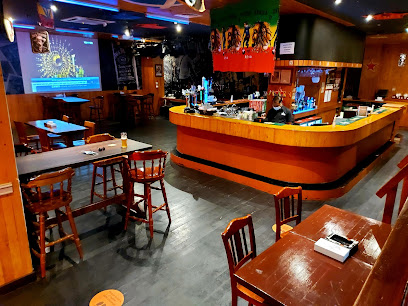
Cellar 59 Bar. Lounge
Discover Cellar 59 Bar & Lounge in Amwaj Islands, where exquisite tapas and crafted cocktails meet a vibrant atmosphere for an unforgettable night out.
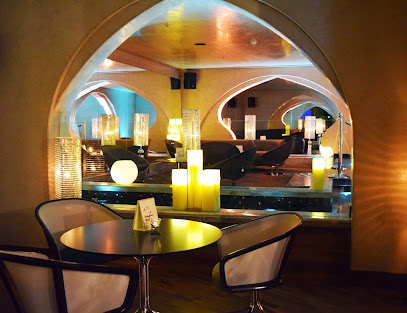
CHAMPS SPORTS BAR
Discover the perfect blend of Thai cuisine and sports entertainment at Champs Sports Bar in Manama, the ultimate social spot for tourists.
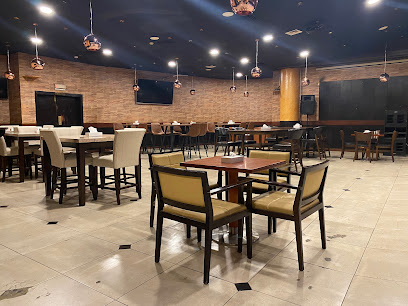
Gulf Russian Restaurant & Bar
Discover the best of Russian cuisine and vibrant nightlife at Gulf Russian Restaurant & Bar in Manama, Bahrain.
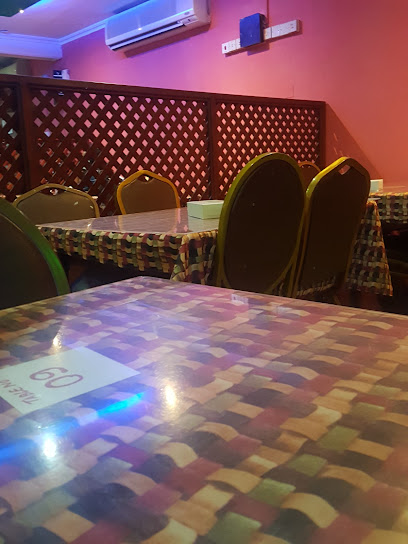
Club Rocky’s Bahrain
Discover the vibrant nightlife of Bahrain at Club Rocky’s, the ultimate pub experience in Al Juffair, offering great drinks and lively entertainment.
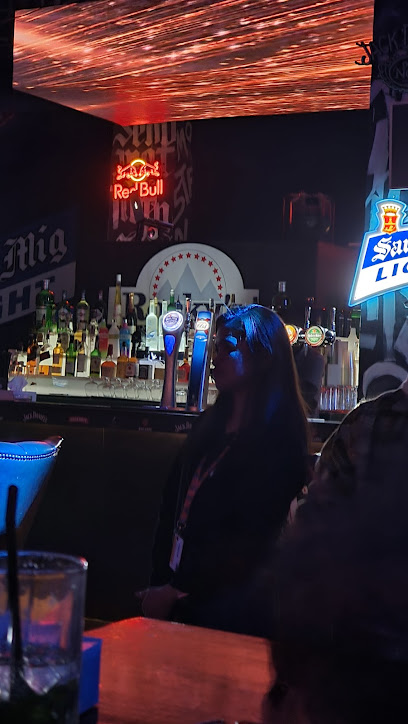
Retro Lounge Bahrain
Experience the vibrant nightlife of Bahrain at Retro Lounge, offering delicious American cuisine, refreshing cocktails, and live music in a stylish setting.
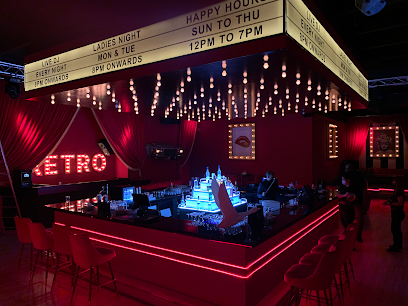
Player's Lounge
Discover the vibrant atmosphere of Player's Lounge, the ultimate sports bar in Manama where great food, drinks, and sports come together.
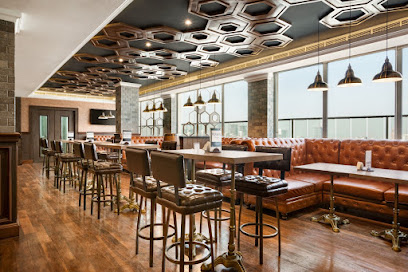
Mysteria Bar
Experience the vibrant nightlife of Manama at Mysteria Bar, a perfect blend of a bar, lounge, and hookah spot for unforgettable evenings.
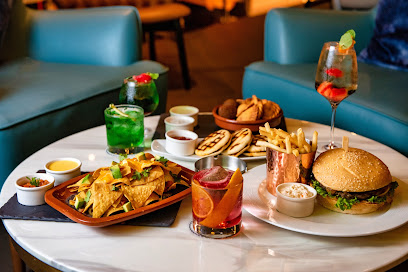
Red house bar
Experience the lively nightlife at Red House Bar in Manama, where vibrant ambiance meets an extensive drink menu for an unforgettable evening.

Sports Bay Bahrain
Join the excitement at Sports Bay Bahrain, the ultimate sports bar experience in Manama, where fans unite for live sports, great food, and unforgettable moments.
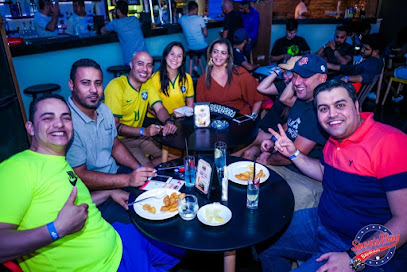
Local Phrases
-
- Helloمرحبا
[marhaban] - Goodbyeوداعا
[wadaeana] - Yesنعم
[naam] - Noلا
[laa] - Please/You're welcomeمن فضلك
[min fadlik] - Thank youشكرا
[shukran] - Excuse me/Sorryعذرا
[atharana] - How are you?كيف حالك؟
[kaifa halak?] - Fine. And you?بخير. وأنت؟
[bikhayr. wa'ant?] - Do you speak English?هل تتكلم الإنجليزية؟
[hal tatakallam al'iinjlia?] - I don't understandأنا لا أفهم
[ana la afham]
- Helloمرحبا
-
- I'd like to see the menu, pleaseأريد أن أرى القائمة، من فضلك
[urid 'an 'ara alqaimah, min fadlik] - I don't eat meatأنا لا آكل اللحم
[ana la aakul allahm] - Cheers!في صحتك!
[fi sahtik!] - I would like to pay, pleaseأود أن أدفع، من فضلك
[awad 'an 'adfa', min fadlik]
- I'd like to see the menu, pleaseأريد أن أرى القائمة، من فضلك
-
- Help!النجدة!
[alnajdah!] - Go away!انصرف!
[ansarif!] - Call the Police!اتصل بالشرطة!
[atassal bialshurtah!] - Call a doctor!اتصل بطبيب!
[atassal bitalib!] - I'm lostلقد ضللت
[laqad dillat] - I'm illأنا مريض
[ana mareed]
- Help!النجدة!
-
- I'd like to buy...أريد أن أشتري...
[urid 'an 'ashtari...] - I'm just lookingأنا فقط أتفرج
[ana faqat atfarij] - How much is it?بكم هذا؟
[bikam hadha?] - That's too expensiveهذا غالي جدا
[hadha ghaali jiddan] - Can you lower the price?هل يمكنك خفض السعر؟
[hal yumkinuk khafd alsaa'ra?]
- I'd like to buy...أريد أن أشتري...
-
- What time is it?كم الساعة؟
[kam alssaa'a?] - It's one o'clockالساعة الواحدة
[alssaa'at alwahidah] - Half past (10)العاشرة والنصف
[al'ashirah walnusf] - Morningالصباح
[alssabah] - Afternoonالظهر
[aldduhr] - Eveningالمساء
[almasa'] - Yesterdayأمس
[ams] - Todayاليوم
[alyawm] - Tomorrowغدا
[ghadan] - 1واحد
[wahid] - 2اثنان
[ithnayn] - 3ثلاثة
[thulathah] - 4أربعة
[arba'ah] - 5خمسة
[khamsah] - 6ستة
[sittah] - 7سبعة
[sab'ah] - 8ثمانية
[thamania] - 9تسعة
[tis'ah] - 10عشرة
[asharah]
- What time is it?كم الساعة؟
-
- Where's a/the...?أين هو/هي...؟
[ayn huwa/hia...?] - What's the address?ما هو العنوان؟
[ma huwa al'unnwan?] - Can you show me (on the map)?هل يمكنك أن تريني (على الخريطة)؟
[hal yumkinuk 'an tarini (ealaa alkhariitah)?] - When's the next (bus)?متى يأتي الحافلة التالية؟
[mata ya'ti alhafilat altaliat?] - A ticket (to ....)تذكرة (إلى ....)
[tadhkirat (ealaa ....)]
- Where's a/the...?أين هو/هي...؟
History of Sitra
-
Sitra, like the rest of Bahrain, was part of the ancient Dilmun civilization, which dates back to around 3,000 BCE. Dilmun was a prominent trading hub due to its strategic location along the trade routes between Mesopotamia and the Indus Valley. Archaeological evidence suggests that Sitra was inhabited by people who engaged in trade, agriculture, and fishing during this period.
-
During the early Islamic era, Bahrain, including Sitra, became a significant center for Islamic learning and culture. In the 9th century, the region came under the control of the Qarmatians, a radical Islamic sect. The Qarmatians established a utopian community and were known for their wealth and military strength. Sitra, along with other parts of Bahrain, was influenced by their rule until the 11th century.
-
In the early 16th century, the Portuguese established control over Bahrain, including Sitra. They were attracted by the island's strategic location and its pearl fisheries. The Portuguese built fortifications to protect their interests and maintain their dominance in the region. Their rule lasted until the early 17th century when they were expelled by local forces.
-
In the late 18th century, the Al Khalifa family, originally from Kuwait, established their rule over Bahrain. The Al Khalifa dynasty brought stability and development to the region. Under their leadership, Sitra became an important agricultural area, known for its date palm groves and fresh water springs. The dynasty continues to rule Bahrain to this day.
-
The discovery of oil in Bahrain in 1932 marked a turning point in the country's history. Sitra, like the rest of the nation, benefited from the economic boom that followed. The oil wealth led to significant modernization and development, transforming Sitra from a primarily agricultural area to a more urbanized region with improved infrastructure, healthcare, and education.
-
Despite modernization, Sitra has preserved much of its cultural heritage and traditions. The island is known for its traditional crafts, including weaving and pottery. The local community still practices age-old customs, particularly during festivals and religious celebrations. Fishing and agriculture remain important aspects of Sitra's cultural identity, reflecting its historical roots.
Sitra Essentials
-
Sitra is an island city in Bahrain, located just a short distance from the capital, Manama. The nearest international airport is Bahrain International Airport, which is approximately 20 kilometers away. From the airport, you can take a taxi or use a ride-hailing service to reach Sitra. The journey typically takes around 25-30 minutes. Alternatively, you can rent a car at the airport if you prefer to drive yourself.
-
Getting around Sitra is relatively easy. Taxis and ride-hailing services like Uber and Careem are widely available and convenient for short trips. Public buses operated by Bahrain Public Transport Company also serve the area, connecting Sitra to other parts of Bahrain. If you prefer more flexibility, renting a car is a good option. Sitra has well-maintained roads and ample parking facilities.
-
The official currency in Bahrain is the Bahraini Dinar (BHD). Credit and debit cards are widely accepted in hotels, restaurants, and shops. However, it is advisable to carry some cash for smaller establishments and markets. ATMs are readily available throughout Sitra, and you can easily withdraw Bahraini Dinars using your international bank cards.
-
Sitra is generally a safe place for tourists, with a low crime rate. However, it is always wise to take standard precautions such as avoiding poorly lit areas at night and keeping an eye on your belongings in crowded places. There are no specific neighborhoods in Sitra known for high crime rates targeting tourists, but staying vigilant is always recommended.
-
In case of emergency, dial 999 for police, fire, or medical assistance. Bahrain has modern medical facilities, and there are several hospitals and clinics in and around Sitra. It is advisable to have travel insurance that covers medical emergencies. Pharmacies are also available for minor health issues, where you can purchase over-the-counter medications.
-
Fashion: Do dress modestly, especially in public places. Avoid wearing revealing clothing. Religion: Do respect local customs and traditions. When visiting mosques, ensure you are appropriately dressed and remove your shoes. Public Transport: Do give up your seat to elderly passengers. Don't eat or drink on public transport. Greetings: Do greet people with a handshake or a polite nod. Eating & Drinking: Do try local cuisine and accept food offerings graciously. Don't refuse hospitality, as it is considered impolite.
-
To experience Sitra like a local, visit the traditional markets (souqs) where you can buy fresh produce, spices, and local crafts. Engage with locals, as they are often friendly and willing to share stories about their culture. Don't miss the Sitra Fishermen's Port, where you can watch traditional fishing practices and enjoy fresh seafood. For a relaxing experience, visit one of the local coffee shops and try a cup of traditional Arabic coffee.
Nearby Cities to Sitra
-
Things To Do in Juffair
-
Things To Do in Isa Town
-
Things To Do in Manama
-
Things To Do in Riffa
-
Things To Do in Muharraq
-
Things To Do in Hamad Town
-
Things To Do in Saar
-
Things To Do in Amwaj Islands
-
Things To Do in Budaiya
-
Things To Do in Al Khobar
-
Things To Do in Dammam
-
Things To Do in Al Shamal
-
Things To Do in Al Khor
-
Things To Do in Al Sheehaniya
-
Things To Do in Al Daayen




